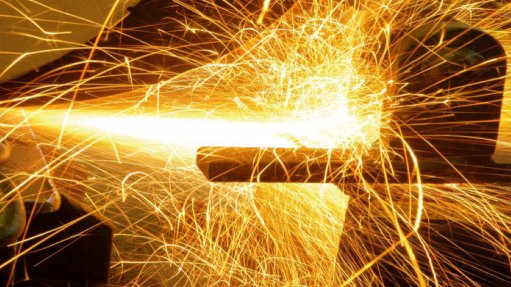
Members of the South African Iron and Steel Institute (SAISI) have come out in full support of the proposed six-month ban on the export of scrap metal from South Africa.
SAISI members include ArcelorMittal South Africa, Cape Gate, Columbus Stainless, Force Steel, Scaw Metals, SA Steel Mills and Unica Iron and Steel, while Safal Steel and Grinding Media are affiliated members.
The temporary ban has been proposed by the Department of Trade, Industry and Competition as part of a broader three-phase intervention to tackle high levels of metals theft, which is estimated to be costing the economy about R187-billion yearly.
The interventions are currently the subject of a public consultation process, during which there have been some warnings that the ban could negatively impact legitimate recyclers and informal waste collectors, as the criminal syndicates involved in copper cable theft are unlikely to heed the ban.
Besides the export ban, the other components of the proposed first phase of the intervention include: an export permit system for semi-finished metal products to facilitate easier policing; the creation of an import permit system for furnaces and various other scrap transformation machines; possibly limiting export permits for semi-finished metal products to businesses that manufacture semi-finished products, and establishing a central repository to monitor metal theft from critical public infrastructure.
During the second and third phases various regulatory amendments may be introduced to enhance the registration, reporting and enforcement regime for metal trading including limiting the number of ports that can be used to export scrap and the imposition of prohibition of cash-for-scrap transactions.
Trade, Industry and Competition Minister Ebrahim Patel told lawmakers this week the temporary prohibition on exports of waste and scrap metal, and the creation of a permit system for the export of semi-finished metal, should lead to a material reduction in the theft of metal from the country's infrastructure as it will “eliminate or reduce one of the avenues for monetising stolen metal, that is its exportation”.
Patel also denied that the export prohibition would have a significant negative impact on legitimate local upstream collectors and recyclers as the volumes of waste and scrap that are currently legally exported can be sold locally.
“The temporary, two-month, prohibition on the export of scrap in 2020 did not cause serious harm.”
SAISI concurs, arguing that the proposed intervention should “lead to a material reduction in the theft of metal from the country’s infrastructure”.
“These interventions will divert significant volumes of scrap metal to the local market, leading to lower prices, which will likely disincentivise theft and vandalism of infrastructure,” SAISI secretary-general Charles Dednam argues.
SAISI believe the steel industry will benefit mainly from a reduction in theft and vandalism-induced service delivery interruptions, particularly as these relate to rail and electricity services.
In addition, it will benefit from more domestic supply at better prices for mini-mills, foundries and metal processors.
“Increasing scrap intake is essential to the cost competitiveness of the local primary steel producers – large and small – and is critical to the industry’s environmental and carbon aspirations,” Dednam says.